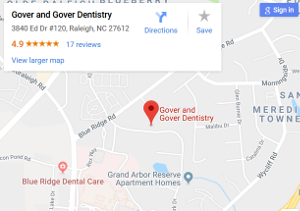A wisdom tooth could be called a badge of honor: It only comes out when you’re a bit older and apparently wiser. But for most people, a wisdom tooth isn’t so much a symbol of worldliness as it is a nuisance.

A Bygone Era
While there’s no denying that the human body is a wonderfully complex machine, its evolution isn’t exactly perfect: Humans retain some body parts that no longer serve a function. One example is the wisdom tooth.
Anthropologists believe the wisdom tooth harkens back to a time when our ancestors had to eat rough, course food such as seeds, leaves, and roots. Evolution’s nifty solution? It developed wisdom teeth to replace teeth lost from chewing these hard-shelled foods.
Before long, however, humans segued from hunting and foraging to growing their own food, and they no longer had to rely only on the wild foods in their environment. While our ancestors’ diet rapidly changed, their bodies couldn’t quite keep pace, which is why vestigial body parts, such as wisdom teeth, remain.
The Problem with Wisdom Teeth
Unfortunately, when it comes to teeth, more isn’t always better. According to Dr. David Gover, dentist in Raleigh, NC, there’s only so much room in your mouth for teeth. And when the wisdom tooth emerges from the gum line, it will crowd out the existing ones. The result? An impacted wisdom tooth.
A Problem You Shouldn’t Ignore
Wisdom tooth removal is a rite of passage for many teenagers, but many people also go about their lives unaware that they have an extra set of molars hiding beneath their gum line—until they emerge, that is.
First off, an emerging wisdom tooth can be very painful, impairing your ability to chew food properly. Furthermore, since an impacted tooth is located in the far recesses of your mouth, it is harder to clean and often succumbs to decay. When this happens, it can cause decay in nearby teeth as well. On top of this, an impacted wisdom tooth might cause inflammation of the gums, and may even lead to the growth of a cyst.
How Your Dentist Can Help
Luckily, trusted dentists in Raleigh, NC can help prevent or solve these problems through wisdom tooth extraction. In most cases, this involves an incision on the gum line in order to extract the wisdom tooth, which often grows at an awkward angle compared to the rest of your teeth.
While this constitutes minor oral surgery, the benefits are worth it, considering the potential oral maladies that this procedure prevents.
Sources:
Why Do We Have Wisdom Teeth?, scienceline.org
Impacted wisdom teeth, mayoclinic.org
